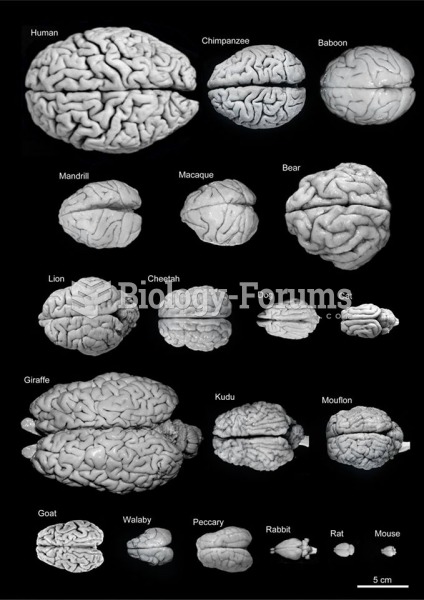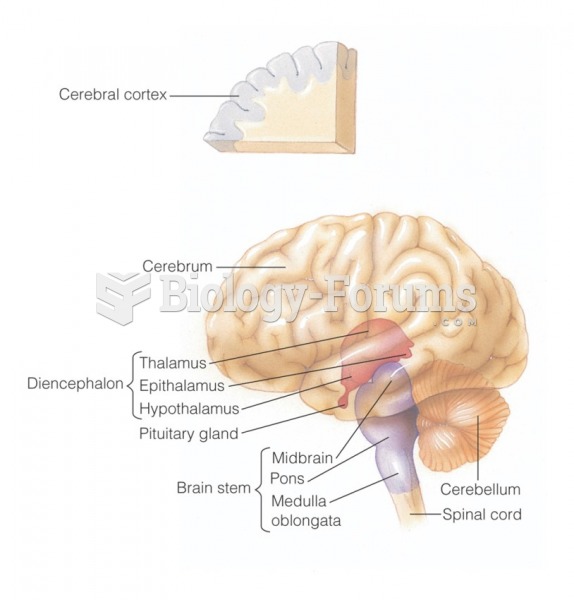|
|
|
Bisphosphonates were first developed in the nineteenth century. They were first investigated for use in disorders of bone metabolism in the 1960s. They are now used clinically for the treatment of osteoporosis, Paget's disease, bone metastasis, multiple myeloma, and other conditions that feature bone fragility.
According to the FDA, adverse drug events harmed or killed approximately 1,200,000 people in the United States in the year 2015.
Today, nearly 8 out of 10 pregnant women living with HIV (about 1.1 million), receive antiretrovirals.
Throughout history, plants containing cardiac steroids have been used as heart drugs and as poisons (e.g., in arrows used in combat), emetics, and diuretics.
By definition, when a medication is administered intravenously, its bioavailability is 100%.
 A subdural hematoma. A meningeal vein is ruptured and blood has accumulated in the subdural space, p
A subdural hematoma. A meningeal vein is ruptured and blood has accumulated in the subdural space, p
 Language is the basis of human culture around the world. The past decade has seen major developments ...
Language is the basis of human culture around the world. The past decade has seen major developments ...
 The absorption of cerebrospinal fluid from the subarachnoid space (blue) into a major sinus. Note ...
The absorption of cerebrospinal fluid from the subarachnoid space (blue) into a major sinus. Note ...




